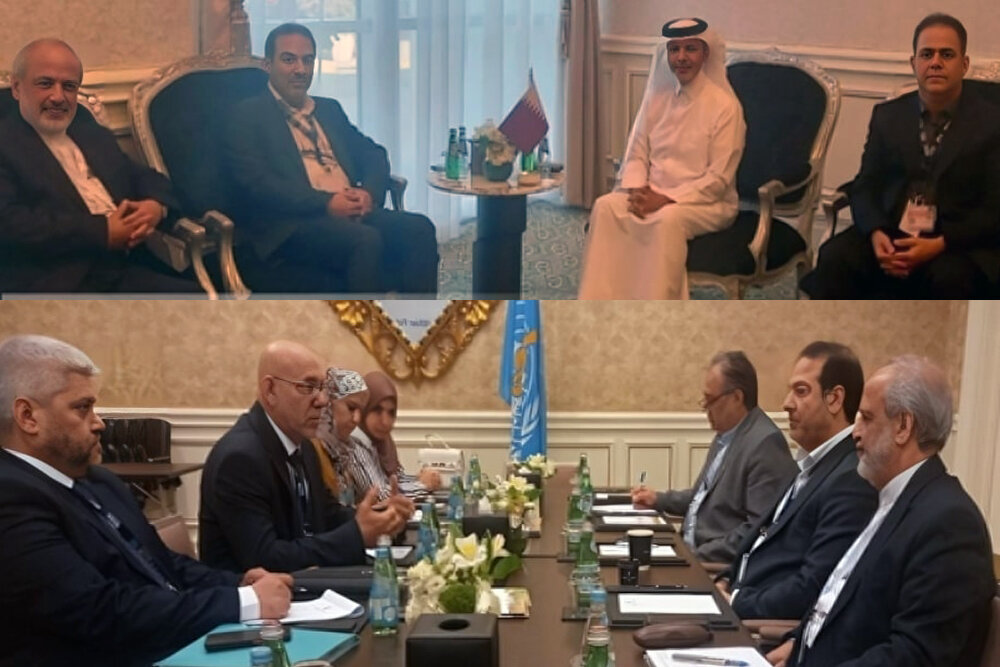Qatar, Iraq interested in boosting health co-op with Iran

TEHRAN –Qatari and Iraqi officials have expressed interest in enhancing cooperation with Iran in the health sector.
The meetings were held on the sidelines of the seventy-first session of the World Health Organization (WHO) Regional Office for the Eastern Mediterranean (EMRO). The meeting was held in Doha, Qatar, from October 14 to 17 under the theme of “health beyond borders: action, access, equity,” the health ministry’s website reported.
During separate meetings, the officials explored avenues for expanding collaborations in the health sector.
Salih Al Marri, Assistant Minister for Health Affairs in Qatar, held a meeting with Alireza Raeisi, deputy health minister for health affairs, and Mohammad-Hossein Niknam, the deputy health minister for international affairs.
The Qatari official highlighted Qatar’s high capabilities in the field of health and expressed the country’s willingness to increase cooperation with Iran’s Health Ministry.
Raeisi, for his part, described the current relations between the two countries in the health sector as great and growing.
Underscoring that the two countries possess good capacities in health infrastructure, disease control, digital health systems, and other areas, he said that enhancing the cooperation will boost the capacities.
The official proposed improving ties in communicable disease management through early detection and sharing expertise.
According to Niknam, two memorandums of understanding are being signed with Qatar, and the two countries are establishing related working groups.
Also, Riyadh Abdul Amir, Iraqi director of the Public Health Department, announced Iraq’s interest in expanding cooperation in different fields of health by creating a working group to follow up on required issues.
The two officials stressed the need for boosting cooperation in the fields of communicable and non-communicable diseases.
Raeisi, for his part, highlighted developing joint activities on digitization of the health system, international health regulations, and rapid exchange of information to control diseases.
The coronavirus pandemic showed that Western countries and the U.S. did not help other nations during the crisis, so it is essential for Iran and Iraq as well as other neighboring countries to have fruitful cooperation and investment in the field of health to prevent confronting severe health challenges during the crisis, the official noted.
Iran's health sector a role model: WHO official
The WHO director for the EMRO has called Iran's health sector a role model in the region.
WHO EMRO is interested in expanding cooperation with the Islamic Republic of Iran, IRNA quoted Hanna Hasan Balkhi as saying.
The official made the remarks in a meeting with Alireza Raeisi, the Iranian deputy health minister, and Mohammad-Hossein Niknam, the deputy health minister for international affairs, on the sidelines of the Seventy-first session of the WHO EMRO.
A delegation led by Health Minister Mohammad-Reza Zafarqandi participated in the session.
“During my short visit to Iran a few months ago, I became familiar with the capabilities of Iran in the health sector; Iran is a role model in health in the region,” Balkhi noted.
“Utilizing full potentials available in the [regional] countries is essential for us, and we will not hesitate to support the implementation of health programs,” the official noted.
Raeisi, for his part, enumerated priorities in the country’s health sector, namely completing the implementation of the family physician program and the electronic health record program.
Referring to non-communicable diseases as another important issue in the health sector, the official said, “Unfortunately, due to the crises in West Asia, the prevalence of non-communicable diseases has increased, and the onset age of non-communicable diseases such as diabetes and obesity has lowered.
Therefore, we are planning to control the risk factors from childhood through old age. To achieve the goal, we need to develop plans in cooperation with the World Health Organization.”
MT/MG
